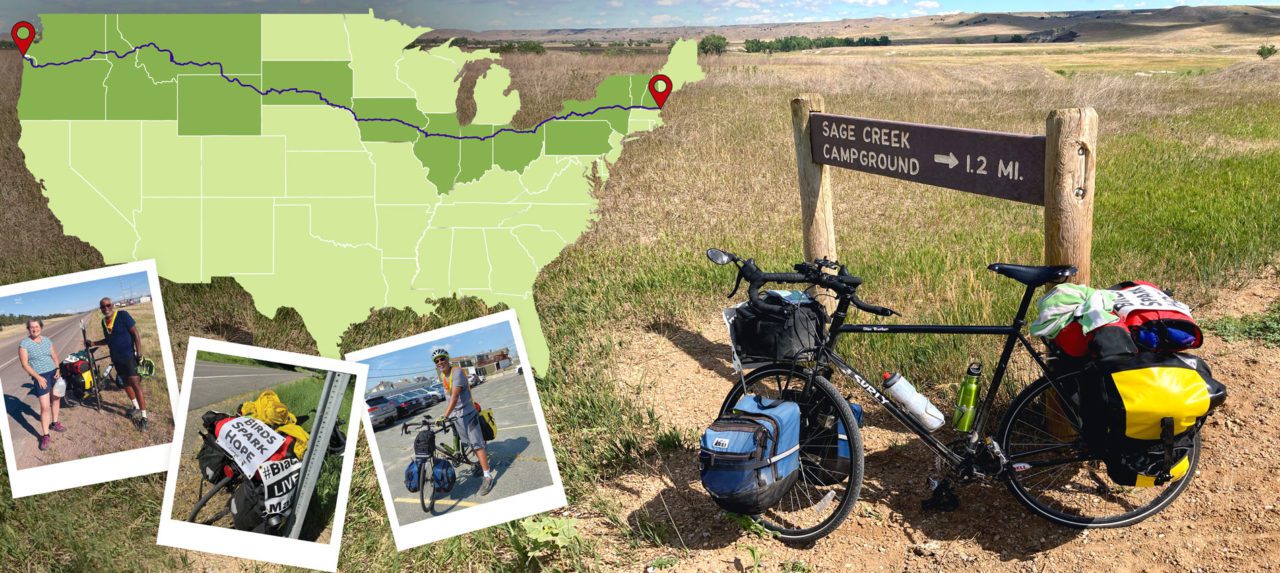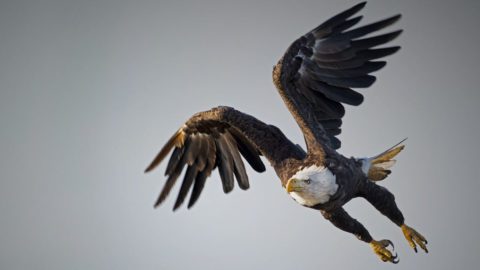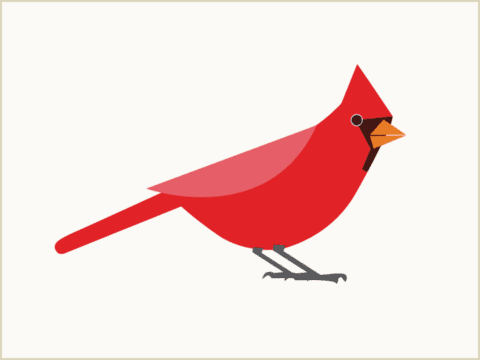Biking and Birding Across the Great Divides
When the nation was cooped up by the pandemic, a Harvard ornithologist flew the coop. Biking (and birding) across the country, he found that Americans are overwhelmingly a “thoughtful and generous” people.
By Christina Greer; Photos courtesy Scott Edwards
June 25, 2021From the Summer 2021 issue of Living Bird magazine. Subscribe now.
As an American politics professor, I always encourage my students to drive across country at some point in their lives to better understand these United States—the immense diversity, the varying terrains, and the absolute vastness of this nation.
And so as a birder, I was intrigued when I learned that ornithologist Scott Edwards had embarked on exactly such a trip last summer. On his bike. A 3,800-mile, 76-day bicycle ride from East Coast to West.
Edwards is the Alexander Agassiz Professor of Zoology at Harvard University, as well as curator of ornithology in the Museum of Comparative Zoology. He’s also a board member at the Cornell Lab of Ornithology. I caught up with him recently on Zoom to hear about his reflections on his journey last summer: the birds he saw, the people he encountered, and how biking, birding, and observing America during a historic year—in the middle of a contentious presidential election season, a devastating pandemic, and roiling social unrest—affected him.
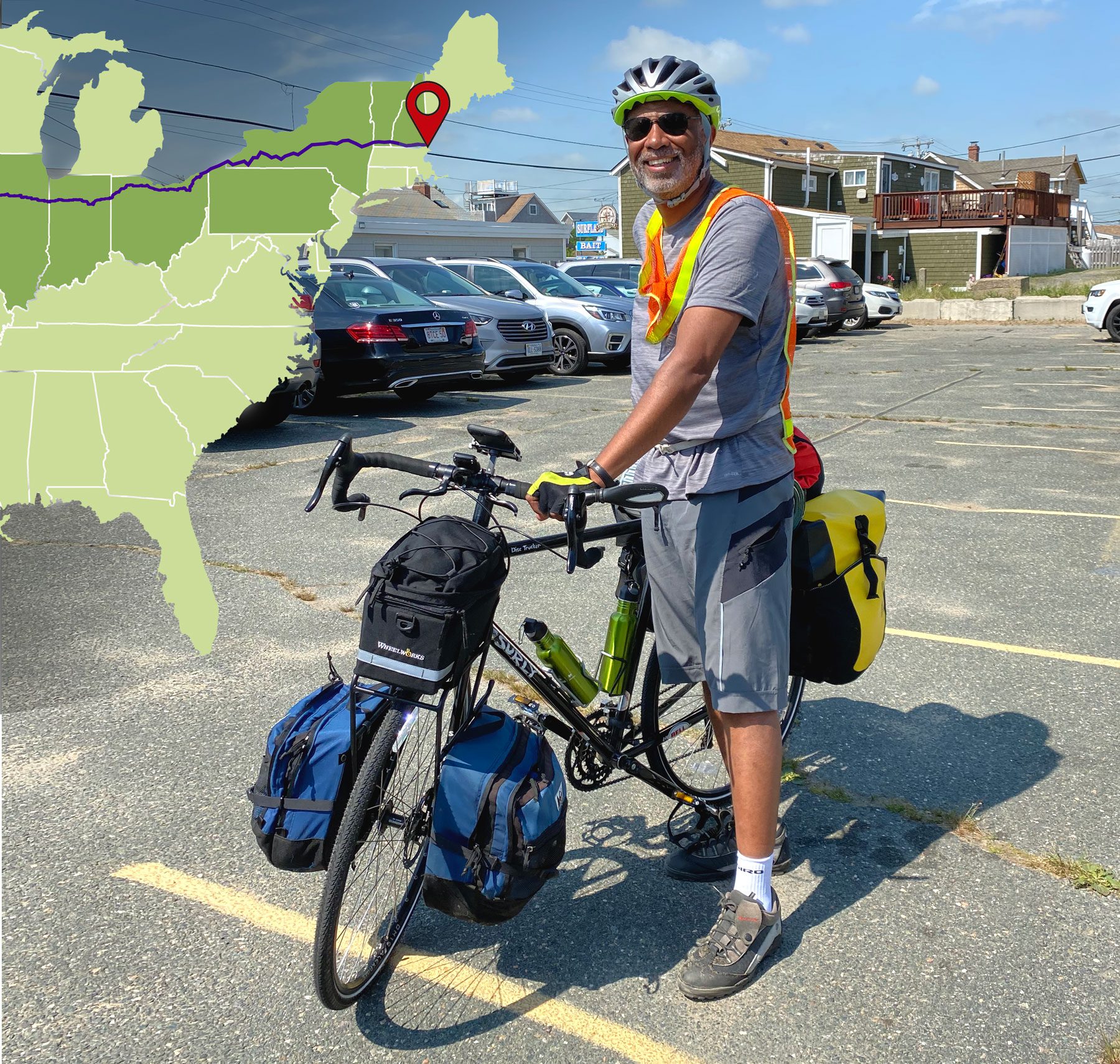
As a relative newcomer to birding myself, I was also curious as to how Edwards became interested in birds. He grew up in the Bronx. When he was about 10 years old, a neighbor took him birdwatching on a whim, and it stuck. After that, young Scott was amazed to find a Northern Flicker, a “crazy-looking bird,” in his backyard.
Edwards didn’t imagine becoming an ornithologist as a child; he was actually on the pre-medicine track in college, as his father is a doctor. But when he took a gap year and got field experience volunteering at the Smithsonian’s natural history museum, he realized ornithology was for him. After returning to finish his undergrad degree at Harvard, it was clear to Edwards that studying the evolutionary biology of birds would be his calling.
It was the birds that called to him last summer when the nation was gripped by COVID. The field research season and academic conferences were canceled, so Edwards thought it would be a good time to head west on his bicycle, as opposed to spending the summer on Zoom calls. He strapped bags holding a tent and some provisions to his Surly Long-Haul Disc Trucker, along with a couple of signs reading “Black Lives Matter” and “Birds Spark Hope.” On June 6, 2020, he set off from Plum Island, Massachusetts, full of optimism and hope.
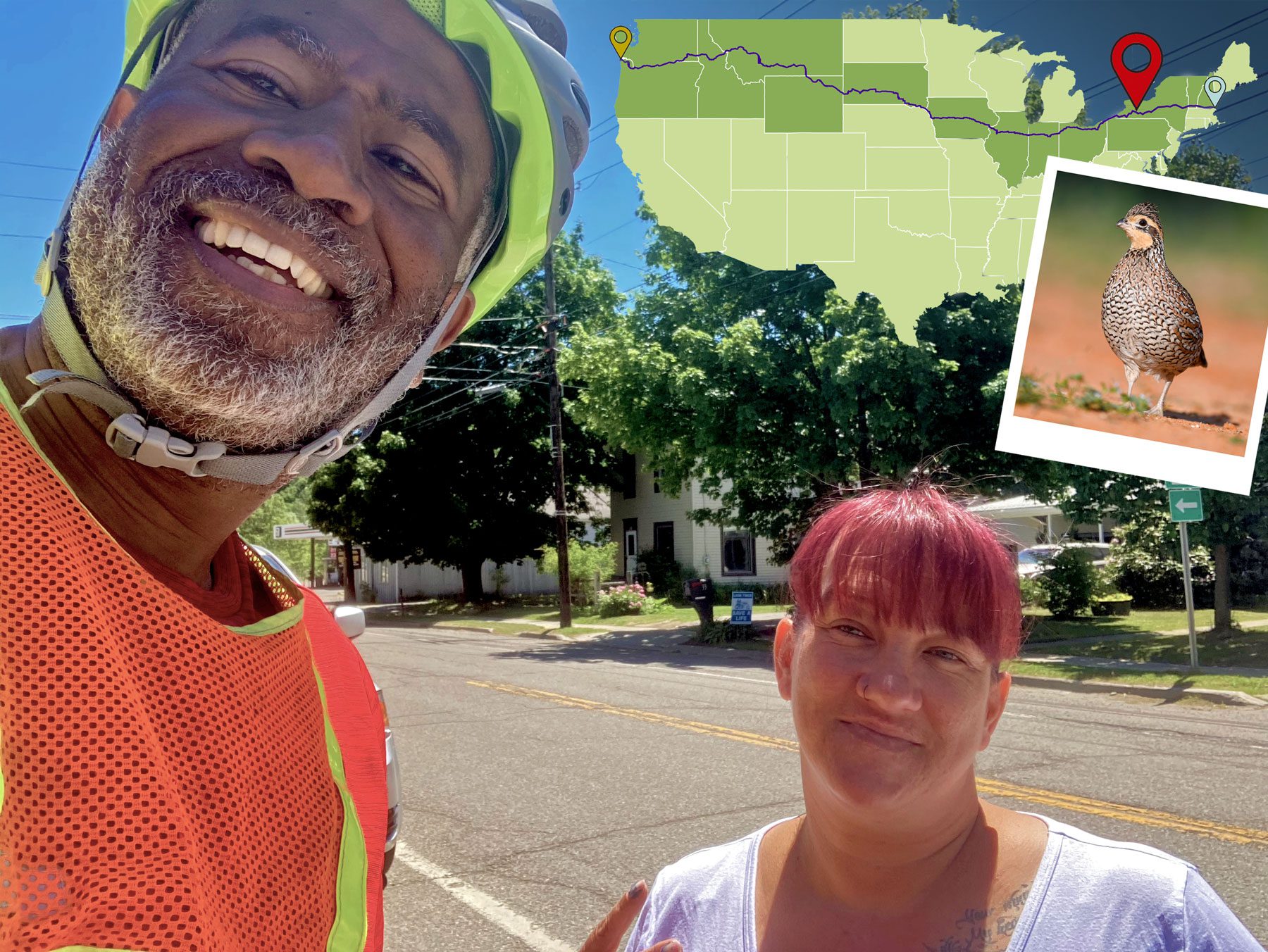
He had chosen a route through the Upper Midwest, Great Plains, and Intermountain West that is racially homogenous, and it ended up solidifying what Edwards had always firmly believed: This country is by and large filled with thoughtful and generous people. Edwards says he experienced overwhelming goodwill in 99% of the Americans he met.
I asked Edwards if he was concerned about the racial climate, given that he was biking while Black at a time when Black Lives Matter protests were spreading to cities large and small in all regions of the country. Edwards said he felt more concern for his safety from cars than people, though he was still keenly aware of the signs on his bike. He had visions of making a start at engaging rural America with Black Lives Matter, but he sometimes found that riding by with a BLM sign and no chance for discussion wasn’t productive. A few times he took the sign down because he didn’t see the point of making people uncomfortable. In eastern Wyoming, he had some “run-ins” with folks that rattled him. To Edwards, it felt like “people from two different planets.” As I listened to him talk, I remembered my own experience in the same area 15 years ago on a cross-country drive, and how it rattled me so, I didn’t stop for the restroom in the entire state.
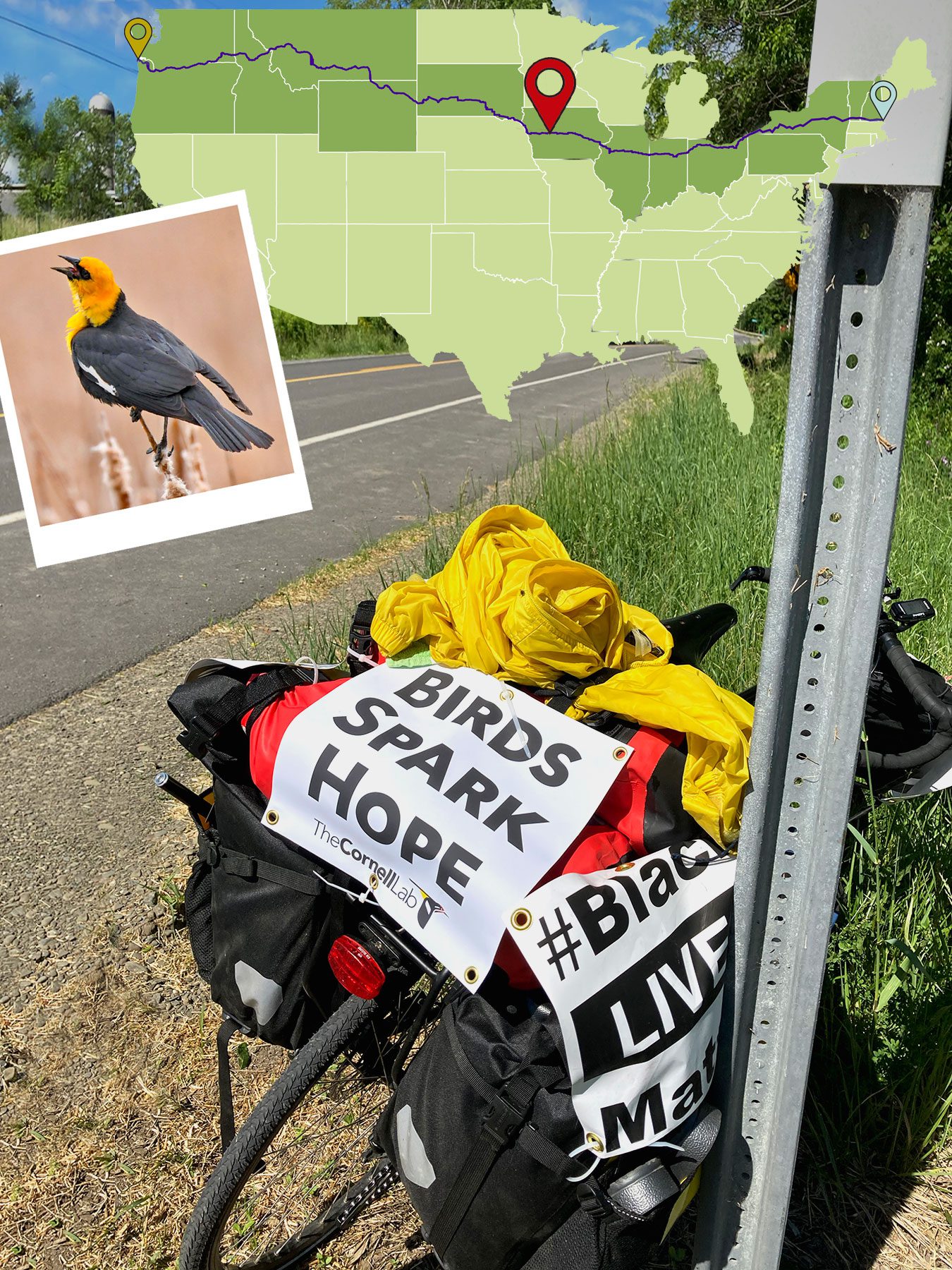
Edwards said that thinking back on his experiences biking across America during one of the most polarizing times in modern politics, he believes the divides in this country are less so Black and white, but more so urban and rural. While biking through Iowa, he saw yard signs for political candidates (and the absence or presence of BLM signs) change in a 180-degree shift from rural to urban. Those are the real two different worlds we’re living in right now, he said.
It was in Muscatine, Iowa, that Edwards was asked by a hotel owner about his other sign, the one that read “Birds Spark Hope.” Many of the folks Edwards encountered on his trip had seen BLM signs before, but the “Birds Spark Hope” sign was something new. Edwards answered that he believed then, as he does now, that although this country has myriad problems, “maybe we can turn to nature as a guide [to] bring us back to our senses.”
Over the course of our conversation, Edwards told me quite a few stories of generosity, and families that offered him a place to stay for the night: “It helped that I would offer to camp in their yard, I had a tent. But almost inevitably they’d invite me in, and I was very thankful. I’ve even kept in touch with a few folks.”
Interacting with so many different Americans and being a recipient of their generosity left Edwards with a sense of inspiration. But he also saw firsthand why grassland birds are declining, with population losses exceeding 50% since 1970 due to habitat loss. In the Midwest, he was hard pressed to find a patch of prairie that hadn’t been touched by the agricultural industry. All the trucks and trains that move hundreds of millions of tons of food and feed grains around the country got him thinking about the vast infrastructure it takes to sustain this nation. He realized just how much corn is grown for cattle and livestock, and the strange economic cycle that is the foundation of American food production.
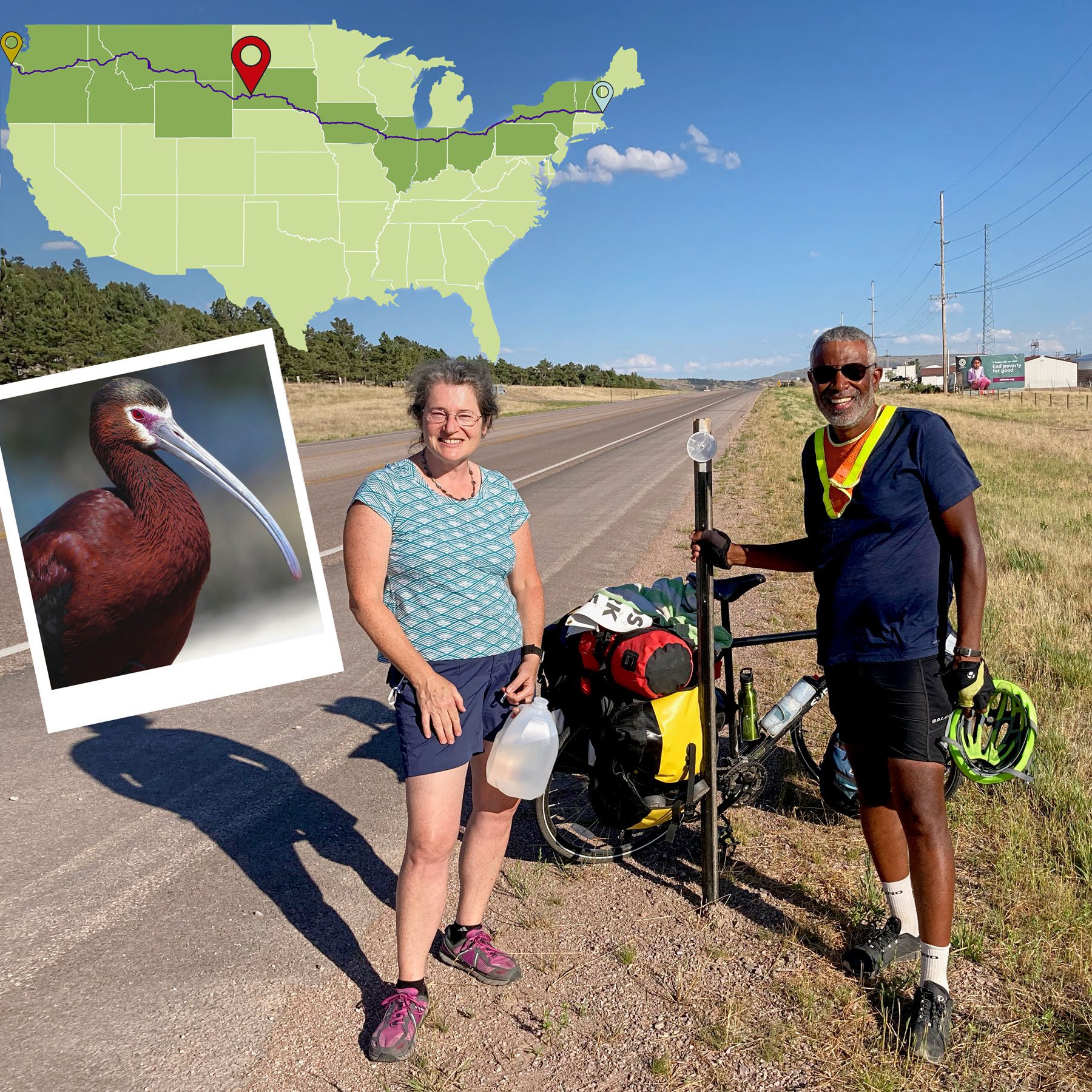
As he rode and reflected on economic and political ecosystems, he also observed a changing birdscape. Biking on the small back roads heading into upstate New York, he heard a bird call that he was excited to encounter—a distinctive, whistled bob-white! Northern Bobwhite is a species that isn’t heard much anymore where Edwards lives in eastern Massachusetts.
On his way west into South Dakota, the common species shifted from the Red-winged Blackbirds and Eastern Kingbirds he had been seeing earlier in his trip to Yellow-headed Blackbirds and Western Kingbirds. He saw Upland Sandpipers among the cornfields, and in the Prairie Pothole region, the marshes and wetlands held Black Terns and White-faced Ibises. I asked Edwards if he had a favorite state for biking and birding, and he said there are several states he wants to visit again. But South Dakota is clearly high on his list, as is Montana.
I wrapped up by asking Edwards what surprised him most about his experience of biking nearly 4,000 miles, and he replied that he actually could do it. Still he asks himself, “Did I really do that?”
Now that he has, he believes more than ever that this country has so much potential, and he believes in his “naïve biologist approach” to fixing things by getting people together more.
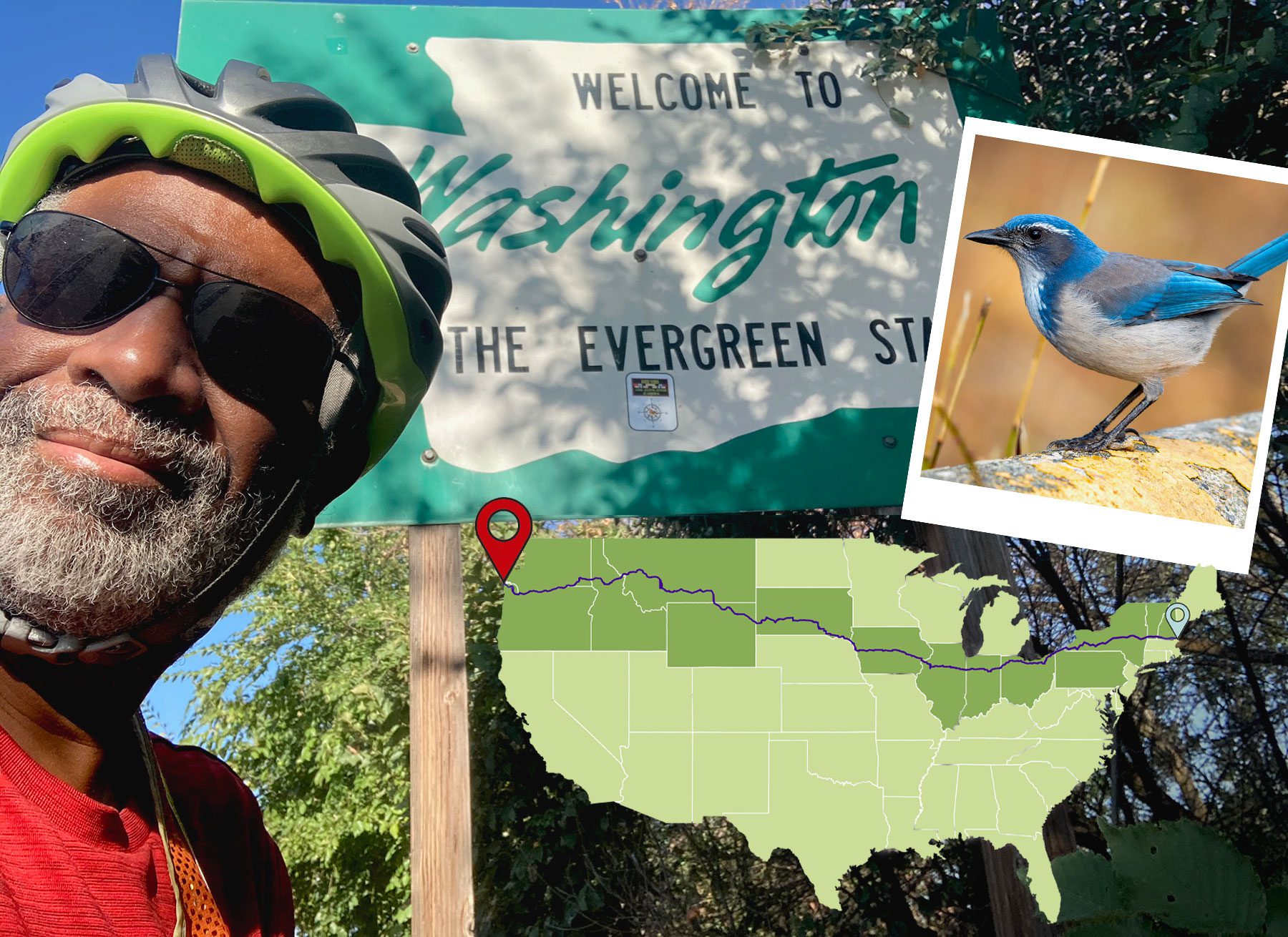
“There are real people behind the protests and tragedies. It is hard for some people to have empathy just seeing protests on television. Many people in these towns have never met or spent time with a Black person, let alone Black people,” Edwards said. “It is hard to empathize with people you don’t see and don’t know.”
If we are to move forward as a nation, Edwards said, we must engage with one another, one conversation at a time.
Just like waiting for a bird to emerge from the brush, progress takes time. And it takes dedication. But as Edwards told that hotel owner in Iowa, perhaps nature can be a guide. We are a diverse people, but even Americans are not as diverse as the birds that inhabit this great nation. And in watching birds, we can observe how they have learned to coexist. Sometimes, as in a mixed flock of several species, they even work together for the greater good.
Dr. Christina Greer is an associate professor of political science at Fordham University and the author of Black Ethnics: Race, Immigration and the Pursuit of the American Dream. Follow her on Twitter @Dr_CMGreer.

All About Birds
is a free resource
Available for everyone,
funded by donors like you
American Kestrel by Blair Dudeck / Macaulay Library
